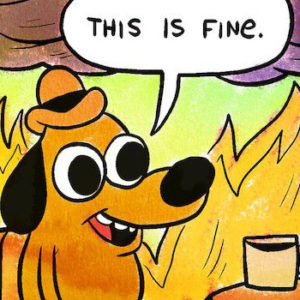Picture this, it’s your day off, maybe the only one you have the entire week.
You tell yourself “I’m going to relax, maybe get a few things done, but I’m really going to rest.”
So, you pick up the book you have been trying to read for months. Or you turn on that TV show you’ve been dying to see, but you can never seem to carve out the attention to watch.
You curl up in the chair or lay out on the couch, and start your chosen task.
Then you shift, trying to get more comfortable.
Your body feels off, like you should be moving.
Your brain says this isn’t active.
You don’t like it.
You have a million things that need to be done.
Things that are supposed to be done.
You try to ignore the little voice.
You try to focus on the thing you’ve wanted to do.
You have to reread the same paragraph over and over, you don’t focus on what’s happening in the show.
You just can’t stop thinking about how you could be doing something useful. Something productive.
Eventually you sigh and turn off the tv or close the book.
You don’t relax on your day off, you clean and do laundry. You’re productive.
Or maybe you just sit there- trying to get yourself to just enjoy the thing. And feel immensely guilty for taking time, for taking space, when you could be checking off your to-do list.
That’s Hustle Culture.
It can also be called productivity culture, but simply put; it is the societal pressure to maintain a high level of productivity at any point in time. Those living within this culture demand that every moment of every hour be dedicated to some sort of work.. Whether it’s career, money, school, or even personal development goals- there is a nagging sensation that you can rest only when there is nothing more to do.
And there is always more to do.
When you live this lifestyle, it says that those who seem busy and ‘on the go’ are seen as ‘aspirational’, or that they have a higher status, or even more positive characteristics like ambition and competence. In an individualistic society these perceived traits further the goal of wanting to be seen as independent and having a strong personal identity.
But in reality; instead of motivating most people, this constant need to grind leads to an inability to rest. The ever moving goal post pushes our bodies and minds into a near-constant state of stress that spreads us thin. So you don’t rest on your days off. Or ever really. The stress hormones in your system keep you pushing and going, achieving and pursuing. Until one day, you just –
Can’t.
The joy is gone, the creativity, the passion, and the fun have completely shattered and become long distant memories.
You’re burned out.
When you are burned out, it is a lot like depression; exhaustion, emptiness, and being unable to cope with daily life are just a few symptoms. Burnout is not a clinical diagnosis, but if left unaddressed- like many things in our lives- it strains our mental and physical well being into more..
So now what?
For one- Recognize that you are burned out. This is the first step in any wellness journey.
Two – Seek treatment. Professionals like counselors help dramatically reduce stress and facilitate emotional and mental healing.
Three – Create work-life balance. Easier said than done, trust me. This is a complex skill, but balancing between rest and ‘work’ is vital for wellbeing.
Remember burnout recovery can take days, months, even years and it takes so much more than a ‘weekend getaway’ to recover. It takes an overhaul of how you view and live your life. Give yourself the grace to relearn living life.
Now, this is not to say that goals and dreams are a bad thing. It is good to have aspirations that are fulfilling and provide restorative balance to your personhood.
But if you find yourself unable to rest- it may be time to reflect on the why.
As a child- were you punished for resting? Instead of doing dishes or vacuuming?
As a teenager- were you teased for being in your room?
As an adult- do you feel an obligation towards the ideals of what being a “go getter” looks like?
Reflection into the why behind why you feel unable to rest starts the process of healing.
And will help you finish reading that book.
Or anything else you want to do.
Signed,
A Chronically Over Productive Person
Sam

